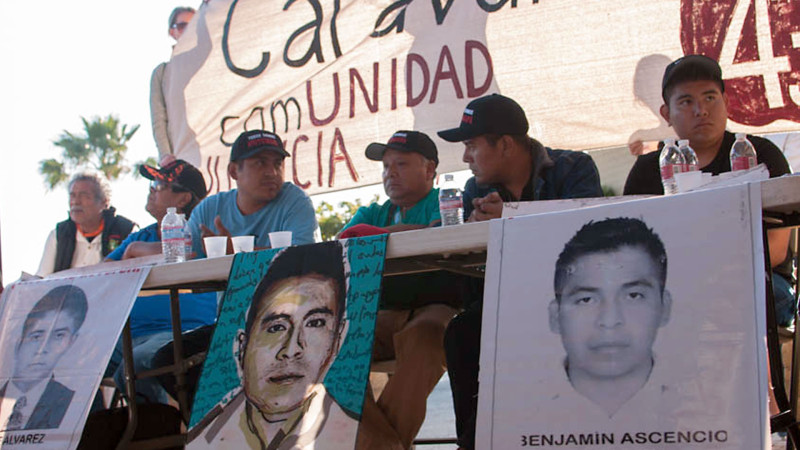A group of classmates and family members of 43 students who have been missing since they were taken at gunpoint last September in southern Mexico is traveling across the United States to get its message out to people here.
The “Caravana 43” hopes to raise awareness and get more press coverage in the United States as well as Mexico. It also wants to see an end to the Merida Initiative, a partnership between the U.S. and Mexico that was supposed to help Mexico fight drug crime. Instead, it has equipped and trained the country's police and military to be even more deadly toward its own citizens, the group says. There are three contingents, each covering a different part of the United States.
Angel Neri de la Cruz Ayala, 19, is a second-year student at the Escuela Rural Normal “Raul Isidro Burgos” de Ayotzinapa.
“I'm here to invite the people of the United States to help us to pressure the Mexican government so they don't forget about our missing classmates,” said de la Cruz.
